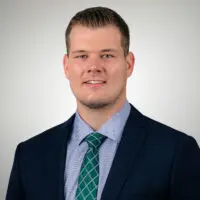Publication
College Athletics New Governing Body and Title IX
By Joe Layzell and Kevin Walton
On October 7, 2024, Judge Claudia Wilkin of the U.S. District Court for the Northern District of California preliminarily approved a settlement for three class action antitrust cases; House v. NCAA, Hubbard v. NCAA, and Carter v. NCAA. The Plaintiffs, current and former student-athletes, sued the NCAA and athletic conferences (the Defendants) over Name Image and Likeness (NIL) usage and other benefits. The settlement, in part, allows participating institutions to share revenue with student-athletes and provides for additional NIL regulation. While NIL has been part of college athletics for the past few years, direct “pay-for-play” is a new concept and represents a foundational change to college athletics. Recently, conference administrators and NCAA representatives met and took steps to create a new entity that will implement and oversee these changes.1 Included in that meeting were two unaffiliated companies. One handles the NBA’s player contract management system, and the other was a large international professional services firm. Those companies are expected to operate the new NIL clearinghouse, which will oversee application of the House Settlement’s changes to the permitted sources, methods, and amounts of NIL compensation to student athletes.2
The major development of this meeting was the creation of an LLC that will oversee “(1) a cap management system; (2) an NIL clearinghouse; and (3) an investigative and infractions unit — much of which Yahoo Sports has previously reported.”3 Overtaking these responsibilities represents a massive shift in the NCAA’s power in college athletics, as the organization “will continue to police matters around eligibility and academics.”4 This move was expected as the House Settlement contains many changes for college athletics.
While most media outlets have focused on the power shift from the NCAA to its member conferences and institutions, other recent developments concerning the House Settlement might reveal another purpose for this entity — Title IX. On January 16, 2025, the U.S. Department of Education’s Office for Civil Rights published a fact sheet asserting that Title IX applies to institutional involvement with NIL activities.5 Similarly, the Department of Education takes the position that Title IX applies to any revenue sharing payments.6
“Section 901(a) of Title IX of the Education Amendments of 1972, 20 U.S.C. § 1681(a), provides that ‘[n]o person in the United States shall, on the basis of sex, be excluded from participation in, be denied the benefits of, or be subjected to discrimination under any education program or activity receiving Federal financial assistance.’”7 These requirements are applicable to universities, and their athletic programs, when the university receives federal funding as “Title IX ‘encompass[es] all forms of federal aid to education, direct or indirect.’”8 However, key to enforcement of Title IX is that “a recipient of federal funds may be liable in damages under Title IX only for its own misconduct.”9 The federal fund recipient itself must perform the act that violates Title IX.10 Similarly, the “Government’s enforcement power may only be exercised against the funding recipient.”11
By creating an LLC that will manage NIL, and potentially revenue sharing, NCAA member institutions, which are universities who receive federal funding, might escape Title IX regulation. The proposed structure and new governing body is no longer an entity that receives federal funds, but a private business. Minor differences like this might be enough. For example, the U.S. Supreme Court found that Title IX was not applicable to the NCAA even though its member institutions paid dues to the NCAA and were subject to Title IX.12 Thus, Supreme Court precedent indicates that payments from a university subject to Title IX to another entity might preclude Title IX application. If NCAA member institutions pay their respective share of revenue to the new LLC, who then splits that revenue amongst eligible student athletes, Title IX may no longer be an issue. Universities are sometimes able to avoid certain federal and state regulation in other circumstances through public-private partnerships. While the new LLC is a different concept than a public-private partnership, the underlying utility and effect of the two ventures has some similarities. Inclusion of outside companies with experience handling sport contracts suggests the entity will have the ability and knowledge to handle such a massive task.
Footnotes
-
-
Id.
-
Id.
-
Id.
-
https://www.jdsupra.com/legalnews/parting-wisdom-outgoing-departments-of-3480867/
-
Id.
-
Nat’l Collegiate Athletic Ass’n v. Smith, 525 U.S. 459, 465–66 (1999).
-
Id. at 466–67 (quoting Grove City College v. Bell, 465 U.S. 555, 564 (1984)).
-
Davis v. Monroe Cnty. Bd. of Educ., 526 U.S. 629, 640 (1999).
-
Id. at 640–41.
-
Id. at 641
-
Nat’l Collegiate Athletic Ass’n v. Smith, 525 U.S. 459, 468, 119 S. Ct. 924, 929, 142 L. Ed. 2d 929 (1999) (“At most, the Association’s receipt of dues demonstrates that it indirectly benefits from the federal assistance afforded its members. This showing, without more, is insufficient to trigger Title IX coverage”).
About Snell & Wilmer
Founded in 1938, Snell & Wilmer is a full-service business law firm with more than 500 attorneys practicing in 17 locations throughout the United States and in Mexico, including Los Angeles, Orange County, Palo Alto and San Diego, California; Phoenix and Tucson, Arizona; Denver, Colorado; Washington, D.C.; Boise, Idaho; Las Vegas and Reno, Nevada; Albuquerque, New Mexico; Portland, Oregon; Dallas, Texas; Salt Lake City, Utah; Seattle, Washington; and Los Cabos, Mexico. The firm represents clients ranging from large, publicly traded corporations to small businesses, individuals and entrepreneurs. For more information, visit swlaw.com.


